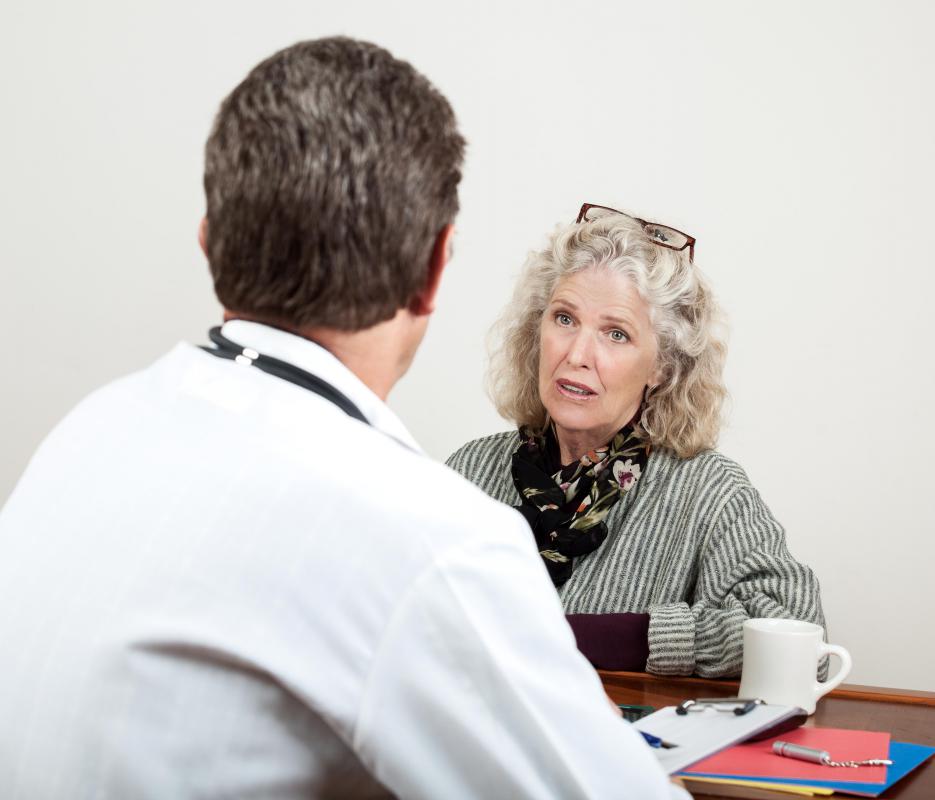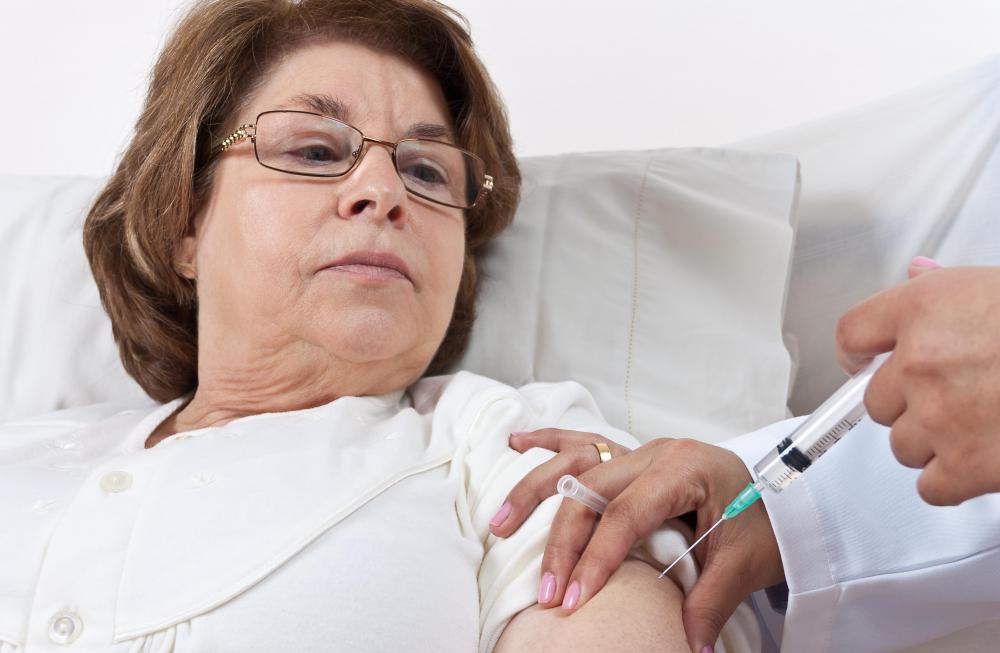At WiseGEEK, we're committed to delivering accurate, trustworthy information. Our expert-authored content is rigorously fact-checked and sourced from credible authorities. Discover how we uphold the highest standards in providing you with reliable knowledge.
What Should I Know About Menopause and Pregnancy?
Menopause and pregnancy, at least the early stages before true menopause occurs (perimenopause), are not mutually exclusive. Menopause is defined as having had no period or menstruation for 12 consecutive months. Prior to that, women may miss a period from time to time, or may even miss a couple. True menopause falls into the 12-month rule.
The trouble with conceptions about menopause and pregnancy is women may believe that if they’re near menopause they can’t get pregnant. There’s a lower incidence of birth control use in women in perimenopausal state, and it is verifiable that women may have a harder time getting pregnant if their menstruation cycles are irregular and unpredictable. However, the number of women who do get pregnant accidentally is quite high, and it’s important to understand that risk of pregnancy continues until you have missed a period for 12 months.

Some women believe that menopause and pregnancy are not possible, and they may feel discouraged if they’ve waited to have children, and if they experience early signs of menopause. There is some good news on this front because when you encounter a few beginning signs that indicate you might be entering menopause, you can still try for a baby. Due to irregularity in cycles you may need help from a fertility specialist to accomplish this, and it is important to understand risks to your child when you conceive in your 40s to 50s.

Risks of certain birth defects and conditions increase as you age. Specific conditions that are more likely in children born in older women include things like Down syndrome. Fertility treatments, depending on type, may also pose additional risks, like having multiple births, or children having certain types of congenital problems.
Instead of wanting menopause and pregnancy or pregnancy in the late 40s or early 50s, some women feel overwhelmed when this occurs. It can be a little daunting to raise children at about the same time you might be working toward investing and securing your retirement income. Others welcome this last opportunity. For these women, menopause signals the end of childbearing years, and pregnancy helps to forestall this end, and gives a chance to parent one last child.

Do not be fooled by one or two missed periods into thinking you are no longer fertile. Instead, go by the medical definition. If you want to get pregnant, beginning signs of menopause may represent your last opportunity. On the other hand, if you want to avoid pregnancy, be sure to continue to use appropriate birth control methods until true menopause occurs.
AS FEATURED ON:
AS FEATURED ON:


















Discussion Comments
I have skipped several periods over the last several months but keep having just a couple then skip some more. Obviously I have not gone the requisite 12 months but I have a very hard time imagining my becoming pregnant at my age. I'm 55 and will be 56 in a just a few months. Just how many women of that age get pregnant via natural conception?
Post your comments